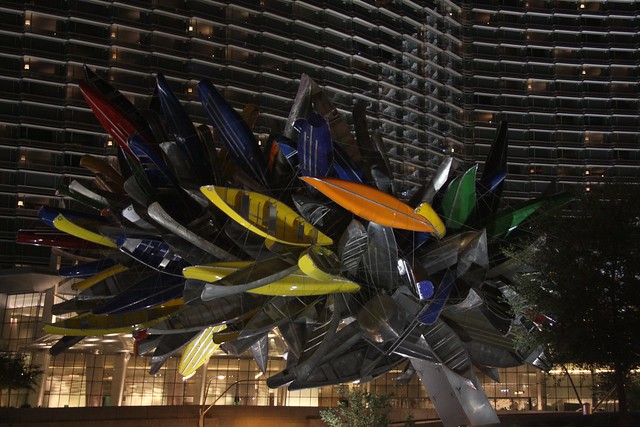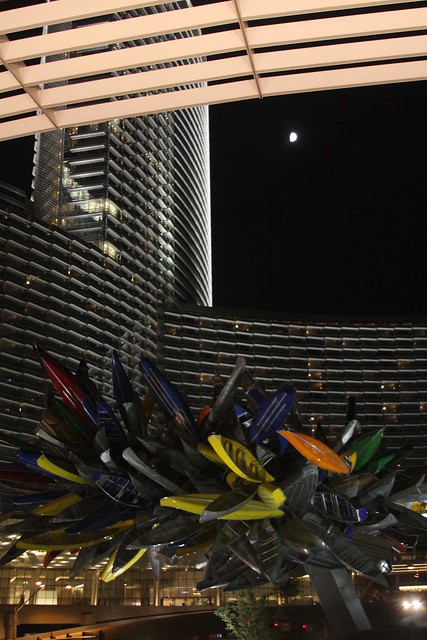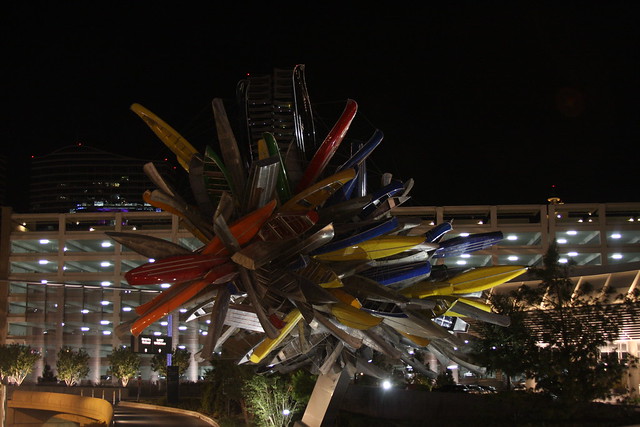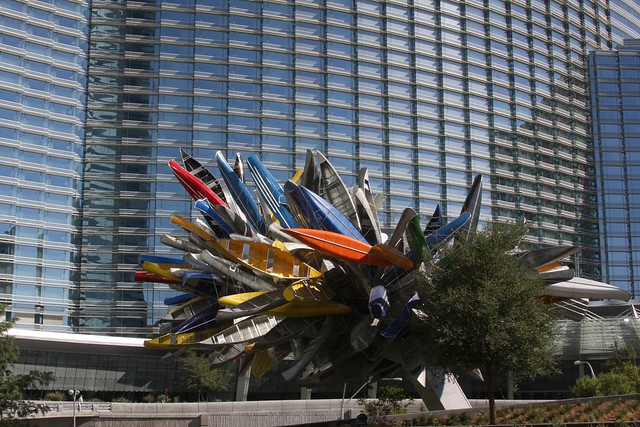More photos of buildings reflected in other buildings. This time the building doing the reflecting is downtown Portland's shiny but otherwise forgettable Congress Center tower. It's your standard-issue generic late 70s International Style office tower. In fact it's one of the tallest buildings in town, but quite honestly I'd never paid any attention at all to it until just now. It could be anywhere in the world, but unfortunately it ended up here.
I think this building illustrates what annoys the public so much about architects. They speak in the arcane jargon of their field, loudly declare each other (and themselves) the biggest geniuses in history and revolutionaries to boot, and then they turn around and build stuff like this. At least it's extremely shiny, so there's that. I suppose the shininess is to protect office workers from the excessive sunshine they'd be getting if the Congress Center had landed in Phoenix or Houston or Atlanta instead of here. Anyway, if you want to know more about it, there's more info at Emporis and SkyScraperPage.com.
There's one small distinguishing detail down at street level, a little Beaux Arts-ish gazebo over the stairs to a subterranean fondue parlor. The gazebo is a recycled bit of the previous building on the site, the historic Congress Hotel. Yes, go ahead and giggle at the name. I'm giggling too. We're all twelve years old here at this humble blog. Anyway, the link goes to an interesting piece at Portland Architecture about the old building. One commenter says of it "The stories the old-time reporters and copy editors would tell about it, though! You'd think half the illegitimate kids in Puddletown started with a gleam in someone's eye in the Congress bar.". So I'd imagine we're not the first to ever giggle like twelve year olds at the name.
The name is not explained in the article, but I have a theory. Or a notion, at any rate. There was once a Congress Hotel in Chicago as well, and like the Portland one it sported a restaurant called the Pompeiian Room. It could be a pure coincidence, but it's not completely absurd to wonder if the two were connected somehow, whether by ownership or by imitation. Unlike the one in Portland, the Chicago hotel still exists, as the (non-Pompeiian) Congress Plaza Hotel. Edna Ferber's 1917 short story "The Gay Old Dog" mentions the Chicago hotel while describing the tale's protagonist:
He bought a car. Naturally. A glittering affair; in color a bright blue, with pale-blue leather straps and a great deal of gold fittings, and special tires. Eva said it was the kind of thing a chorus girl would use, rather than an elderly businessman. You saw him driving about in it, red-faced and rather awkward at the wheel. You saw him, too, in the Pompeian Room at the Congress Hotel of a Saturday afternoon when roving-eyed matrons in mink coats are wont to congregate to sip pale-amber drinks. Actors grew to recognize the semibald head and the shining, round, good- natured face looming out at them from the dim well of the theater, and sometimes, in a musical show, they directed a quip at him, and he liked it. He could pick out the critics as they came down the aisle, and even had a nodding acquaintance with two of them.
And, in any case, the name of the Chicago hotel is no mystery at all, as it's bordered to the north by Congress Parkway. So if my notion is correct, the Congress Center is named, indirectly, after a street in downtown Chicago.



